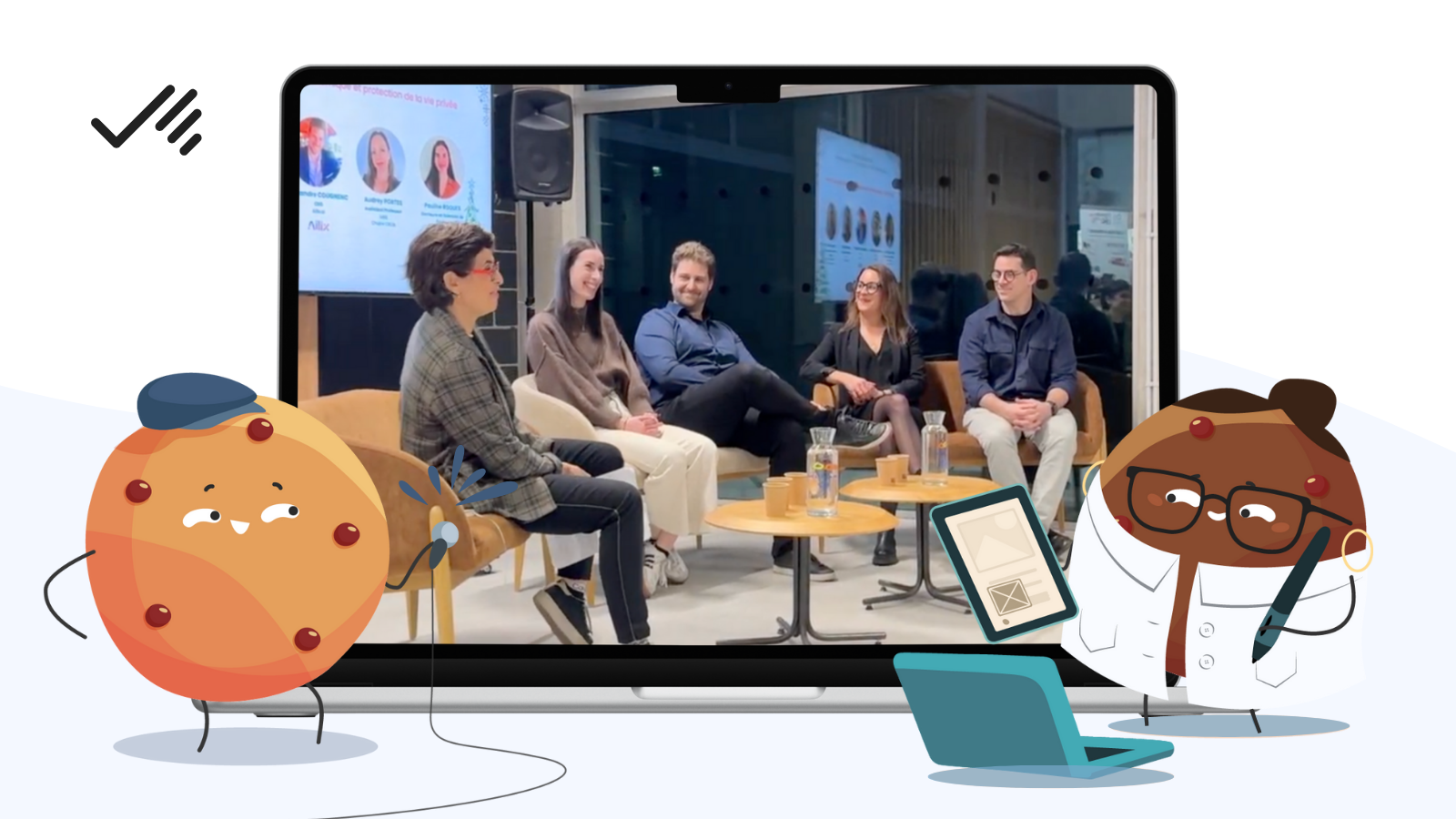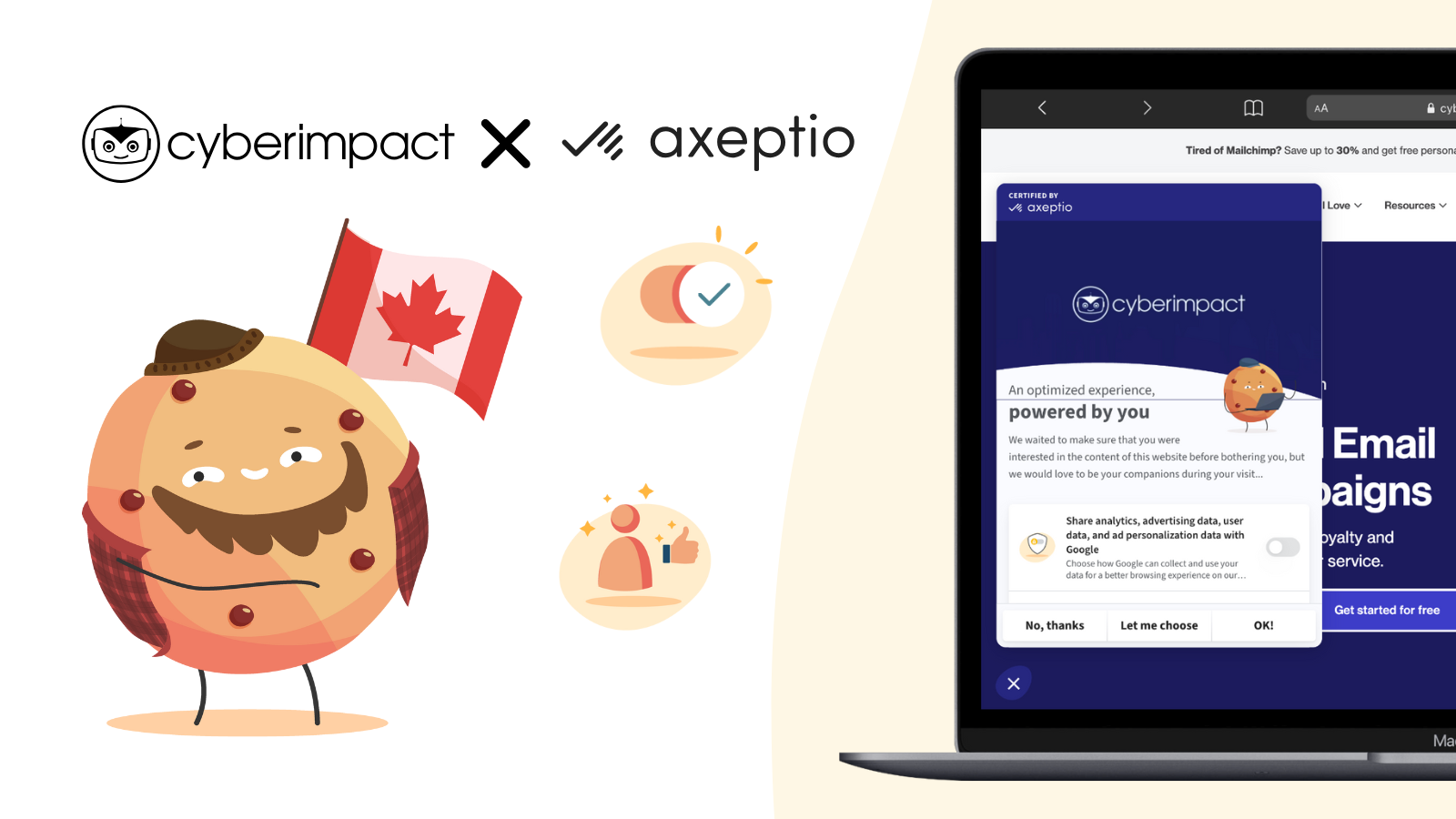User consent fatigue is concerning because it impacts your performance metrics. To address this, you need to improve the user consent experience. The Axeptio platform offers a suitable approach for this.
What is consent fatigue?
As internet users, you face terrible cookie banners every day. Consent fatigue arises from this onslaught of requests. Banners are often boring and repetitive because they all talk about cookies. And some are even aggressive.
This type of user experience is harmful, and the reactions are problematic:
- Some users will do anything to avoid the banner. They install ad blockers to block banners or click the x to close the module.
- Others leave the site as soon as they see a restrictive banner.
- Many accept cookies by default because they feel pressured or click a button without thinking.
Why are your users experiencing consent fatigue?
The GDPR in Europe and other regulations worldwide require all publishers to obtain visitors' consent before depositing certain cookies.
This is not a marketing approach with voluntary authorization. On the contrary, it has often been imposed. As a result, many publishers offer a poorly designed, even unpleasant experience.
- On some media websites, a cookie wall suddenly appears in the middle of the site. And you must accept cookies... or subscribe;
- Legalistic banners are often found with similar formulations. The module overwhelms you with a mass of information, especially about vendors. In short, it discourages you from exercising your rights, encouraging you to accept by default.
- Many sites still have informative banners. You can only click on the x or an "OK" button, both of which only serve to close the banner.
The GDPR has never required offering a poor-quality experience. Many sites have not made the effort to build something pleasant and sustainable. And it's this poor-quality experience that has led to consent fatigue.
Why should you fight consent fatigue?
The phenomenon is significant, and it impacts your performance measurement.
Like everyone else, you practice opt-in hunting and want to boost consent. However, be careful not to degrade the user experience. The bounce rate of a site tends to increase if a format as intrusive as the cookie wall is used.
Many internet users want to avoid having to choose at the beginning of their site visits. They want to close the banner as quickly as possible or ignore it to continue browsing. In short, they want to avoid interacting with your module.
Ultimately, consent fatigue leads to collecting consents that do not consent. This makes it difficult to establish a relevant KPI for measuring brand engagement.
Should we therefore forego the consent process, some people ask. And as a result, some bad ideas are resurfacing:
- Use other, sometimes more opaque trackers, such as local storage or fingerprints. The problem is that, legally, they are subject to the same rules as cookies.
- You replace "consent" with "legitimate interest" for certain types of cookies. This is an excellent way of giving power back to your users, enabling them to control specific data flows.
Don't misunderstand your enemy. The goal is to refrain from multiplying your efforts to avoid the banner. It's all about putting the user at the center of your concerns, and considering that you're primarily looking to respond to a request through cookie banners.
How to fight consent fatigue? Through user experience.
The current context offers you an opportunity... provided you keep in mind that your audience visits several websites in a day and is mostly over-solicited regarding cookie banners. It would be better if you differentiated yourself with a high-quality consent management experience.
In doing so, you also have the opportunity to capture the attention of your users.
To achieve this, you need to do your utmost to offer consent as a service. You'll showcase ergonomic, fun and transparent functionalities that allow users to manage their privacy. Your audience will appreciate these efforts.
It’d be best if you had the time and in-house expertise to work on the experience you want to offer. And that's where Axeptio can help.
- Our solution is the fruit of a major focus on building a well-designed UX, pleasing graphics and a fun, educational tone. It's ready to use; you need only install it.
- The widget adapts to all graphic charters and editorial tones. In other words, it's fully customizable. The upshot of all this is that you can offer your audience the very best user experience, and they'll be able to see it, even on other publishers' sites.
- With our contextual consent or wall consent, you can enrich the experience and optimize your consent rate.
By installing it on your website, you'll be integrating:
- Cookie management that complies with the RGPD regulations;
- A function for controlling confidentiality via cookies;
- An educational marketing tool on how your site works: the cookie widget is a list of your site's ingredients. Over time, this will encourage you to make it more honest and more beautiful.
Conclusion: combat consent fatigue with user-friendly CMP
European legislators passed the GDPR to ensure user control over their data.
This is your opportunity to build a privacy-friendly narrative that reflects your values and ethics. It will show the respect you have for your audience. Axeptio might just be the right solution for you.

.png)




